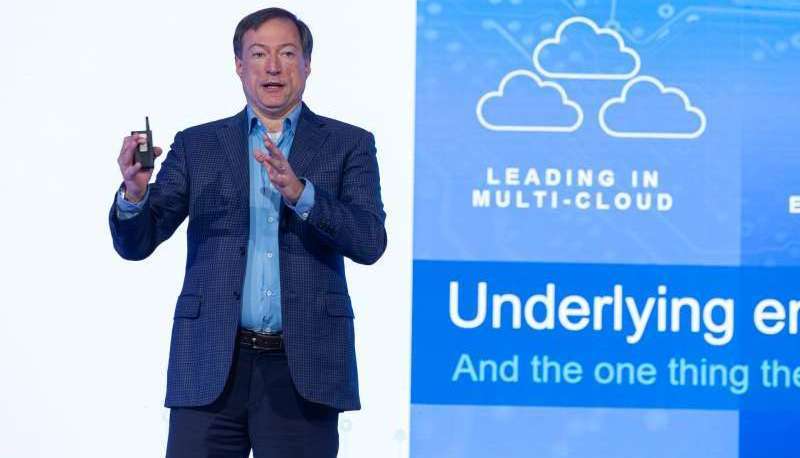
John Roese describes himself as a “technology optimist.”
The Dell Technologies Global Chief Technology Officer illustrated that spirit at the MerITocracy American Innovation Forum on July 21, displaying enthusiasm about a U.S. wireless industry that he acknowledged has fallen far behind foreign rivals.
That’s because Roese sees the future, and it’s post-5G.
The veteran tech leader told the MerITocracy crowd that U.S. companies and the Federal government can capture the next iteration of emerging wireless technology, known as sixth-generation (6G) wireless.
And to do so, he called for nothing less than a “national effort” to secure American 6G dominance, an innovative partnership involving tax incentives, government support for Open RAN wireless tech development, and further investment by major U.S. companies that only began rebuilding the domestic wireless technology industry over the past four years.
“We kind of missed (the 5G) market, to be perfectly honest. We’ll play a bit but…the U.S. won’t lead in 5G. It’s just that simple,” Roese said. “However, by 6G, there is no reason on Earth why we should not have fully re-engaged in this market and started to materialize as a U.S. source of supply that could actually play.”
“Fundamentally the only way to rebuild an industry is a national effort,” he added. “…We have eight years” to get that done.
Even as Federal agencies are adopting 5G networks, some in government and industry have turned their attention to 6G, which is not expected to be developed until around 2030. The Senate Commerce, Science, and Transportation Committee in March approved the bipartisan Next Generation Telecommunications Act, which would create a new council to oversee Federal investments and policy development of next-generation communications technology, including 6G wireless technologies.
Before Roese elaborated on the potential of 6G, he gave a brief history lesson on its predecessor. The picture wasn’t pretty.
He outlined how the United States, once a leader with companies such as Motorola and Lucent Technologies, essentially bailed out of the wireless technology industry just over a decade ago, ceding development of 5G network equipment to rivals in China and elsewhere. “We no longer have any tier 1 suppliers,” said Roese, who added: “I can count the number of wireless research institutions that are world class on probably two hands.”
But the gloom started to lift a few years ago, as companies such as Roese’s own Dell, along with Microsoft, Google and Amazon, began entering the market. “Starting in 2018, U.S. Began to Rebuild a Telecom Supply Base,” read a chart Roese included with his presentation.
Since it’s already too late for U.S. industry to catch up on 5G, he said, it’s time to turn attention to 6G, where “we have to actually be in the market with a viable ecosystem able to supply the operators in eight years.”
To make that happen, Roese called for a series of public and private steps, such as strategic investment by industry leaders, a massive scaling up of research, economic incentives in the tax code, and government support for Open RAN networks.
It’s not only a matter of creating new programs, but also better use of existing ones. “We have to expand the ecosystem,” Roese said. “Anyone who has a program to develop talent, STEM, to catalyze the startup ecosystem, to enhance our research investment, whatever we’re doing today…they need to include telecom and advanced 5G as part of that.”
Returning to his more positive vision, Roese sketched a future marked by clear U.S. dominance. “If we can actually rebuild this industry, which we’re doing now but need help, imagine if that’s powered by a foundation of U.S.-led wireless technology,” he said.
Closing out his presentation, Roese pointed to current U.S. leadership in industries such as cloud and compute, and said that even in areas such as security where the nation faces major problems, “the innovation ecosystem in the U.S. is quite robust.”
“The reality is, I’m still an optimist,” he said. “It is definitely within our reach” to fix the various problems and vault the U.S. into a broader position of leadership in global technology innovation, he said.
